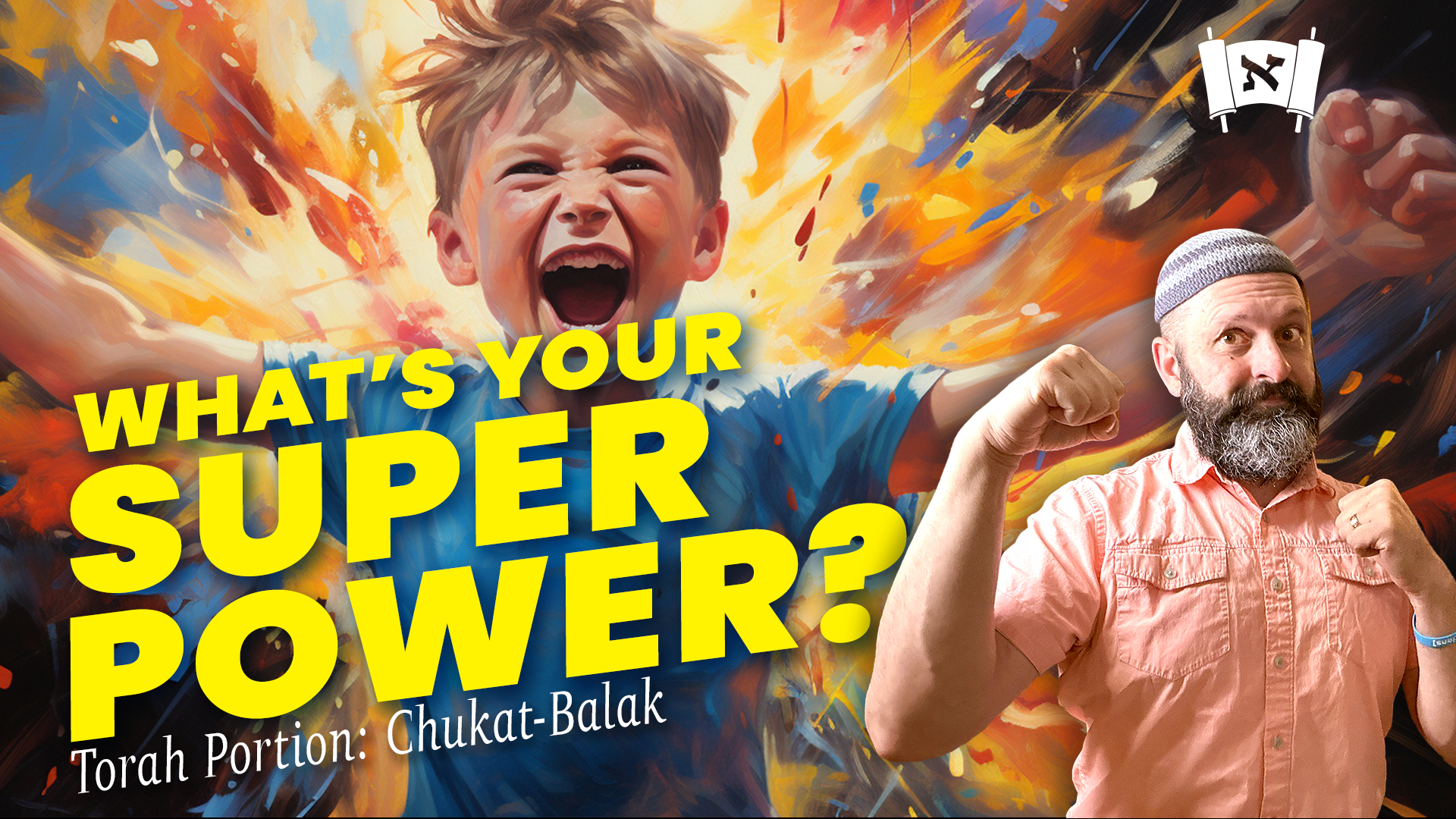What's Your Super Power?
Series:

Parashat Chukat-Balak (Numbers 22:2 - 25:9)
Parashat Balak introduces us to one of the most enigmatic figures of the entire Bible—the prophet Balaam. What can we learn from him? Let’s revisit his story and then draw some practical application from it.
Fearing being overrun by the Israelites leaving Egypt, Balak, the king of Moab, attempts to recruit Balaam to call down calamity upon the Israelites. As we know, his first attempt fails. The LORD appears to Balaam in the night and tells him, “You shall not go with them. You shall not curse the people, for they are blessed” (Numbers 22:12). Balak’s messengers return to him empty-handed. Undeterred, Balak sends a second, more influential delegation to Balaam in hopes of successfully bribing him into changing his mind. But Balaam seems to immediately tell them they are wasting their time. He says, “Though Balak were to give me his house full of silver and gold, I could not go beyond the command of the LORD my God to do less or more” (22:18). However, he tells them to spend the night and he will try and get permission again. This time, Hashem gives him permission to accompany the delegation, but to only say what He instructs him.
From there our story takes a strange, almost fantastical twist and begins to sound more like a comic book than a Bible story. While on his way to Balak, Balaam’s donkey refuses to obey and eventually stops altogether. And as Balaam is beating the beast, it begins to speak to him just like another person. Balaam doesn’t seem the least bit shocked, and carries on a conversation with it only to find out that this “dumb beast” is more spiritually attuned than himself, the prophet “who sees the vision of the Almighty” (24:4, 16). It had seen the angel blocking their path, yet Balaam had not. Eventually, Balaam meets Balak and attempts to curse Israel, but Hashem places words of blessing in his mouth instead. He blesses them not only once, but four times, frustrating the Moabite king who sends him away.
From this single account, it seems as though Balaam was a righteous soul, a servant of the One True God. But we find out later that although he could not curse Israel, he would eventually conspire with Midian in an attempt to destroy Israel through seducing them into harlotry: “Behold, these [the women of Midain], on Balaam's advice, caused the people of Israel to act treacherously against the LORD in the incident of Peor” (Numbers 31:16).
What’s up with Balaam? According to our sages, he had been chosen by God to be a prophet to represent the nations like Moses represented the Israelite nation. He had a special gift that allowed him to have an open line of communication with the God of the Universe. Although Hashem was able to control the prophetic words that Balaam spoke, he still maintained a completely free will to do as he pleased. Our sages resolve the question of free will versus predestination by teaching us, “Everything is in the hand of heaven except the fear of heaven” (Berachot 33b).
Balaam had great potential. But rather than pouring that potential into noble ambitions and using it to help others, Balaam squandered it on selfish gains. Pirkei Avot highlights this by contrasting the character of Balaam with that of Abraham:
All who possess these three qualities belong to the disciples of our father Abraham: a generous eye, a humble spirit, and a meek soul. But he who possesses the three opposite qualities—an evil eye, a proud spirit, and a haughty soul—is of the disciples of the wicked Balaam. (Avot 5:23)
Just because Hashem had placed within Balaam an incredible gift and gave him enormous potential did not mean he was guaranteed to become all that Hashem intended. Man was given a completely free will so that he could choose between good and evil, life and death. It’s not just our potential or our ability that will determine our destiny. It is our choices. Balaam ultimately chose to side with the Midianites to seduce Israel and paid a heavy consequence for it:
And they also killed Balaam the son of Beor with the sword. (Numbers 31:8)
Although Balaam had an amazing gift that many would call a “power,” his true power was one we all possess: the power of choice. We all have a super power of choice. The question is, how will we use it? Will we use it to better ourselves and others and build God’s Kingdom? Or will we use it for our own pleasure, self-indulgence, and ultimately our own self-destruction? You’ve been given an incredible power. Use it wisely today.








